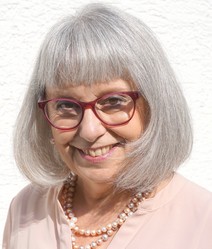Healthy Autonomy
Association for Promoting Healthy Autonomy e.V.


Martina Wittmann
 Psychological trauma and dementia
Psychological trauma and dementia
There are approximately 1.6 million people suffering from dementia in Germany – and the number is rising. Scientists are convinced that most forms of dementia are caused by age-related degradativ processes in the brain. Therefore, risk of dementia is much higher at old age. Knowledge gained from neurobiology and from psychotraumatology proving that our brain converts experiential stimuli into biological signals is being disregarded. In fact, interpersonal relations are highly relevant for human health. Considering that, plague formation that goes with Alzheimer's disease can be a long-term consequence of bothersome relationships. Based on this consideration, dementia's major symptom – the loss of memory – can be regarded an age-based survival strategy.
In most cases, people affected live in more or less steady family structures. Due to their disease, they need help and shelter. Facing pressure from society, relatives see themselves responsible to care for their ill parent, brother, or sister. They do not feel comfortable distancing themselves from the huge responsibility that comes with having to care for someone. Consequently, they give themselves up and prioritize the needs of their ill relative over their owns'. Another reason for that is they try to find closeness to the person affected by helping them in time of need – closeness that has not been there before. This is where I see a high risk of re-enactment of identity trauma as well as love trauma. People suffering from dementia experience the loss of independence. Caring relatives with an unstable identity identify themselves with the ill person, which is extremely problematic.
If they have not processed their own trauma, relatives are highly likely to engage in a perpetrator-victim relationship again. It soon becomes palpable how strong and stable the own identity of the caring person is. If it is strong enough, they are able to make decisions based on their own wellbeing.
Martina Wittmann, born in 1960, a nurse, a teacher of nursing professions, foreign assignment on "Care Germany" in the refugee camps of the Republic of the Congo during the genocide in Rwanda. 1998 training for supervisor. 2002 training by Prof. Franz Ruppert, since 2004 seminars and individual work in private practice in Augsburg.
www.traumaaufstellung-augsburg.de
This email address is being protected from spambots. You need JavaScript enabled to view it.
